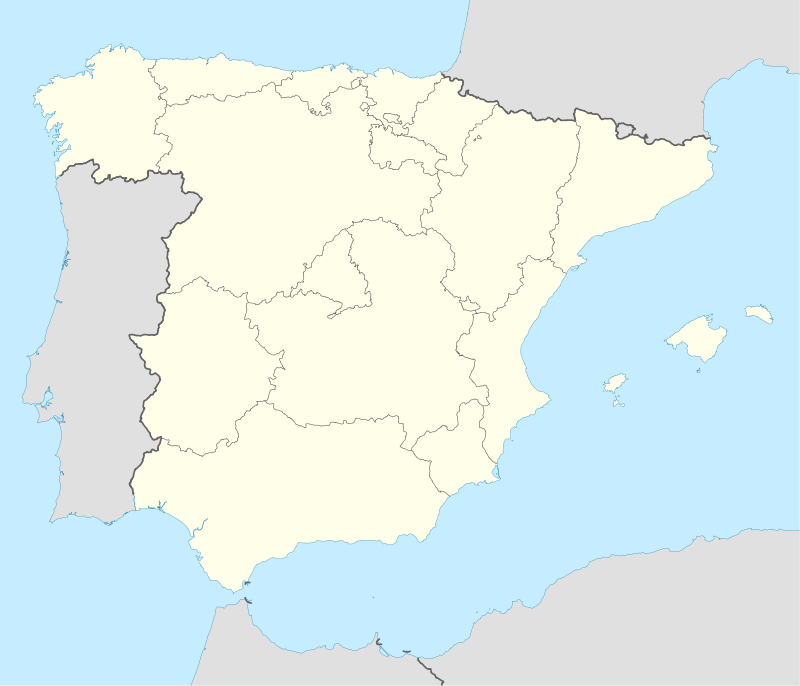Yuncler
| Yuncler | |
|---|---|
| Municipality | |
 | |
 Yuncler Location in Spain | |
| Coordinates: 40°2′26″N 3°54′13″W / 40.04056°N 3.90361°WCoordinates: 40°2′26″N 3°54′13″W / 40.04056°N 3.90361°W | |
| Country |
|
| Autonomous community |
|
| Province | Toledo |
| Comarca | La Sagra |
| Judicial district | Illescas |
| Founded | See text |
| Government | |
| • Alcalde | Luis Miguel Martín Ruiz (2007) |
| Area | |
| • Total | 18 km2 (7 sq mi) |
| Elevation | 534 m (1,752 ft) |
| Population (2009) | |
| • Total | 3,332 |
| • Density | 190/km2 (480/sq mi) |
| Demonym(s) | Yunclereño,a o Yuncleroso, sa |
| Time zone | CET (UTC+1) |
| • Summer (DST) | CEST (UTC+2) |
| Postal code | 45529 |
| Official language(s) | Castillian |
| Website | Official website |
Yuncler is a town and municipality in the Sagra shire, province of Toledo, Spain, 42 km to the south from the national capital, Madrid. It borders Villaluenga de la Sagra to the south, Yuncos and Cedillo to the north, Numancia to the northeast, Pantoja to the east and Cedillo to the west. It has an agricultural-based economy, with a recent surge in small businesses.
Etymology
Yunkler is derived from a moorish term, itself derived from junko meaning sedge. In 12th century documents it is named as Ocner, Yunquer and Yunkler.
Administration
After the 2007 elections, the local government consists of 6 council members from PSOE, 3 from APY and 2 from PP.
History
The first settlers were of Moorish origins, being mentioned in documents dating back to 1179.
Places of Interest
- Labour house from the 19th century, declared historic and preserved intact, currently a hotel and restaurant named La Casa Grande.
- Santa María Magdalena church, declared historic. Together with La Casa Grandeand the town hall (of modern construction) they form the church square (Plazuela de la Iglesia).
External links
This article is issued from Wikipedia - version of the 1/25/2016. The text is available under the Creative Commons Attribution/Share Alike but additional terms may apply for the media files.